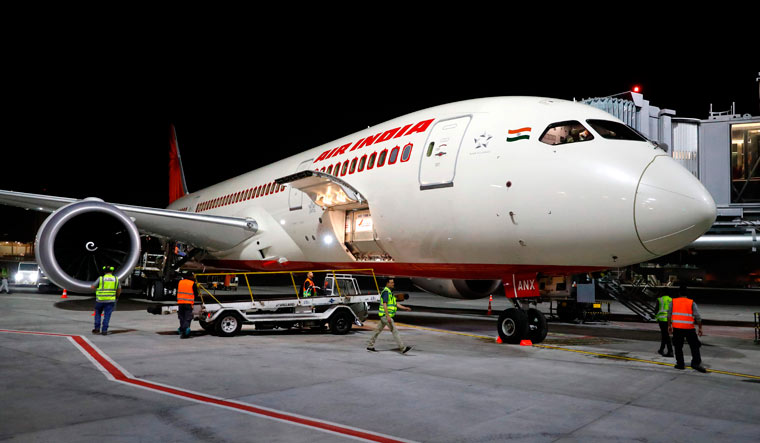Air India's disinvestment process is likely to get delayed, just like its often-delayed flights.
After a tepid initial response to Expression of Interest (EOI), the government, on May 1, extended the entire privatisation process of Air India by a fortnight. More than 160 queries on the sale process has since reached the government.
After submitting EOI by May 31, qualified bidders would be announced on June 15, as against the previous date of May 28, said a corrigendum issued by the civil aviation ministry.
Along with the extension, the finance ministry's Department of Investment Promotion and Asset Management (DIPAM) has also issued a 19-page clarification in relation to queries received from prospective bidders for Air India.
The government clarified that no Asset Valuation Report (AVR) would be provided to the bidders. It said valuation of Air India's grounded aircraft would also have to be evaluated by bidders on their own.
“We agreed to provide the age and maintenance record of aircrafts instead at the request for proposal (RFP) stage, so bidders can take a judgement on the assets of Air India," said a senior civil aviation ministry official.
As per guidelines set by DIPAM, any strategic divestment is conducted in three steps: inviting EoIs and qualification of potential bidders, request for proposal (RFP) and submission of bids, and completion of the transaction. The government proposes to offload a 76 per cent stake in Air India, Air India Express and AISATS and has invited bids for the same.
However, prospective bidders and aviation industry players had reached out to the government to revise some of the terms of sale of the debt-laden airline.
Among other things, bidders are concerned over three issues—government's toehold in the airline, Air India's large debt burden, retention of its airport parking slots and continuity of Air India's various route-sharing agreements.
On Tuesday, civil aviation secretary Rajiv Nayan Chaubey, said that the government retains the right to sell or not sell Air India if the bid price is found to be inadequate.
Polls in 2019 would not affect the procedures to be followed for disinvestment of Air India, Chaubey said.
The government has appointed a transaction adviser to the sale process, to determine the enterprise value of Air India. An asset valuer will provide the value of Air India's assets to the government. Estimates of Air India's assets were done earlier too, before the government invited EOI for sale of the national carrier.
The inputs of both these advisers will be taken to the Air India Specific Alternate Mechanism (AISAM), comprising minister of civil aviation, finance, and road, transport and highways, for determining a floor price. This is the price below which the Air line will not be sold.
"These valuers will provide their inputs by August. But if we don't get the right price, we may not sell," Chaubey said on Tuesday.
The highest bidder for Air India should become clear by the end of August—this bidder will have to meet the ''substantial ownership and effective control” (SOEC) criteria and get security clearances before the stake sale takes place by December this year.
The SOEC criteria mandates that the airline remains in Indian hands, with majority Indian ownership and conducts business in India.
However, prospective bidders still remain largely unimpressed with the sale terms. The top leadership of global aviation industry research firm Centre for Aviation (CAPA) reached out to the civil aviation ministry earlier in the week seeking relaxation of certain terms of Air India's sale.
"As it happens in such complex transactions, being flexible and having an open mind on major issues is necessary. Revising the EoI with more liberal terms will be required to further align it to investor interest," CAPA said in a statement issued later.
The government, however, seems to be unflinching in its decision clarified on May 1, that the terms of sale would not be altered.
With interest for Air India waning among airlines, the government is also open to selling the Maharaja to any non-airline business entity, Chaubey said on Tuesday.
Meanwhile, the Air India sale has evoked resistance from the Sangh-backed Swadeshi Jagaran Manch, and strong opposition to the sale, by Air India employee unions so far.
Many will be happy in the event of 'no sale' or delay, but Modi administration's single big disinvestment move in four years, would have failed to take-off. This will leave the Maharaja to stay put as the government's official carrier and further bleed the exchequer.


